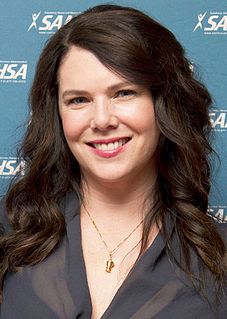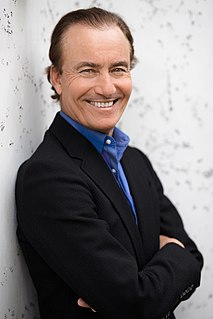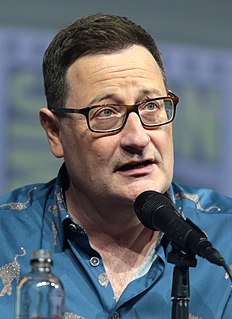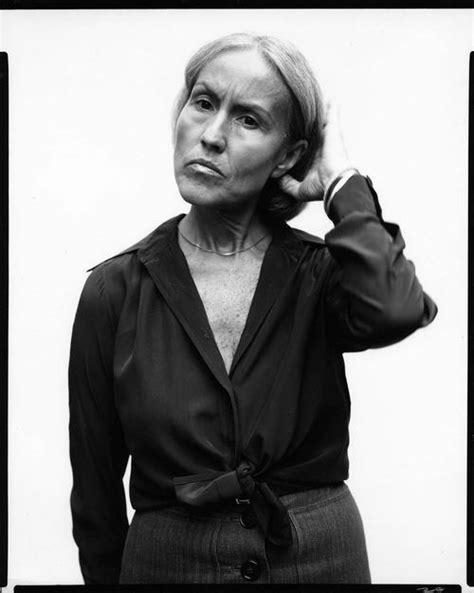A Quote by Danny Boyle
I always say to anybody who's going over to America for the first time, 'Whatever you do, go and see a popular mainstream film with a big audience.' Because people shout out. You never get that in Britain. Everybody's so quiet, scared to laugh. It's like being in church.
Related Quotes
I would rather be a person who struggled there than someone who had a great, easy time and then got out in the world and was like, "Wait a minute, I didn't get voted class president? What's going on?" You know, "popular" doesn't necessarily correlate to anything. "Popular" still has to get up at 7:00 in the morning and go to work and do something worthy too. There's no edge, really, that you get from being whatever was popular in school.
America is so special, everybody wants to go there. And there's not a thought given to how it got special. It's just assumed it was made that way, I guess. It's just assumed that it's just there. And it's also assumed that it's always going to be there. Call it the golden goose or whatever you want but everybody saying that we have no right to keep anybody out because nobody kept us out, we all had to get here. Nobody here now actually started here. Of course, that's no longer true.
It's very important that a film that intends to play tricks on the audience... has to play fair with the audience. For me, any time you're going to have a reveal in the film, it's essential that it have been shown to the audience as much as possible. What that means is that some people are going to figure it out very early on. Other people not til the end. Everybody watches the film differently.
If you go into a forest of film stories, you never can get right through the forest straight ahead; you always have to make some U-turns or whatever, because there's some trees in the way. And that's what I'm doing. Sometimes, as an actor, if you make only these intellectual, wonderful films, which I love, from time to time you have to make a film like Armageddon so people see that you're still around.
I think the biggest challenge was being aware of a certain audience that was going to see this film [lone survivor]. There's a big difference from a typical movie, journalists and critics and film goers that go see it find that, that's the general experience you have as a filmmaker. So that just kind of proves my point that there's a really different audience.
I agree with Ru that it'll never be mainstream, because mainstream means everybody knows it, everybody loves it, everybody accepts it. That's never gonna happen with drag, but it's definitely become more mainstreamed for people that never knew anything about it, being opened up to it as a form of art.
Anybody doesn't like these pitchers don't like potry, see? Anybody don't like potry go home see television shots of big hatted cowboys being tolerated by kind horses. Robert Frank, Swiss, unobtrusive, nice, with that little camera that he raises and snaps with one hand he sucked a sad poem right out of America onto film, taking rank among the poets of the world. To Robert Frank I now give this message: You got eyes.
I actually find in America, there's a slight snobbery about actors who go back and forth between big heavy dramas and popcorn fare. That always intrigues me, because that doesn't exist in the same way in Britain. And I imagine it would be worse. In terms of the sort of class, and the sort of snobby, slightly on the back-foot thing Britain has. But it's much more prevalent in America. I'm really intrigued by it. I don't know why that is. But I'm aiming to break down those barriers by being in a Shakespeare film and a Smurfs film within six months of each other.
I'm not entirely comfortable saying I'm an actor, because it seems like a very weird, almost dorky thing to say you are. I laugh after every take just out of the discomfort I feel that I'm even on film. It's an awkward thing for me to be doing. Once we get going, it's always fine, and as we're shooting, I'm never thinking about it. I'd say that all my time in front of the camera is equally uncomfortable for me.
No matter what I tend to be doing, generally people always think I'm crazy, first of all, because I'm always talking about things in the future that haven't happened yet, and people have a hard time believing what's gonna happen. Secondly, I'm almost always a contrarian, whatever direction everybody else is going in, I'm probably figuring out a way to go in a completely opposite direction.
I so think it's limiting to define an audience ahead of time. This is something I've brought on myself by being like, 'There are no 'real' teen publications! That's what I'll do!' But then it's like, well, if I want 'Rookie' to be successful and popular, then people will invalidate the realness by saying it's popular and mainstream.
I've never gotten over what they call stagefright. I go through it every show. I'm pretty concerned, I'm pretty much thinking about the show. I never get completely comfortable with it, and I don't let the people around me get comfortable with it, in that I remind them that it's a new crowd out there, it's a new audience, and they haven't seen us before. So it's got to be like the first time we go on.
I think what it is is, if you're in school and you're not that bright or good-looking or popular or whatever, and one day you say something and someone laughs, well, you sort of grab onto it, don't you? You think, well I run funny and I've got this stupid big face and big thighs and no-one fancies me, but at least I can make people laugh. And it's such a nice feeling, making someone laugh, that maybe you get a bit reliant on it. Like, if you;re not funny then you're not...anything
I was surrounded by talented people. I always remember Mrs. Carmel Snow, saying to me, "You know, Polly, if one person thinks they're a big star, then we're all stars. You just go out there and always do your best. And always have time to see any designer - no matter how big or how small, have time to see them. You don't have to just see the big shots. You never know what's coming around the corner and the talent that is going to be important. That is your job."






































